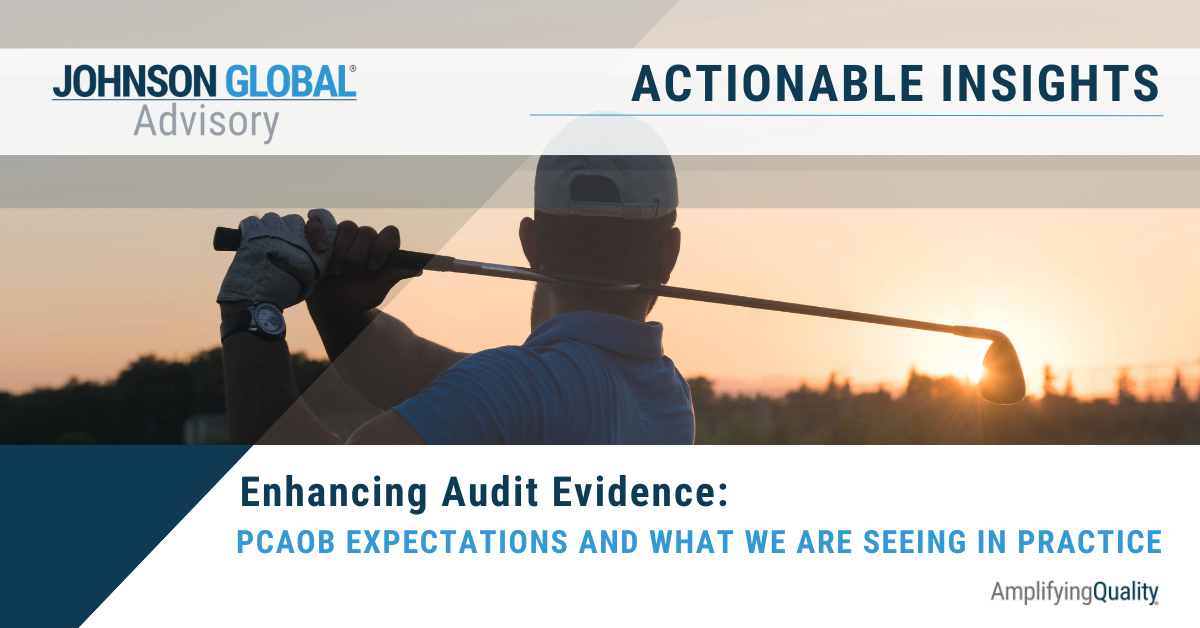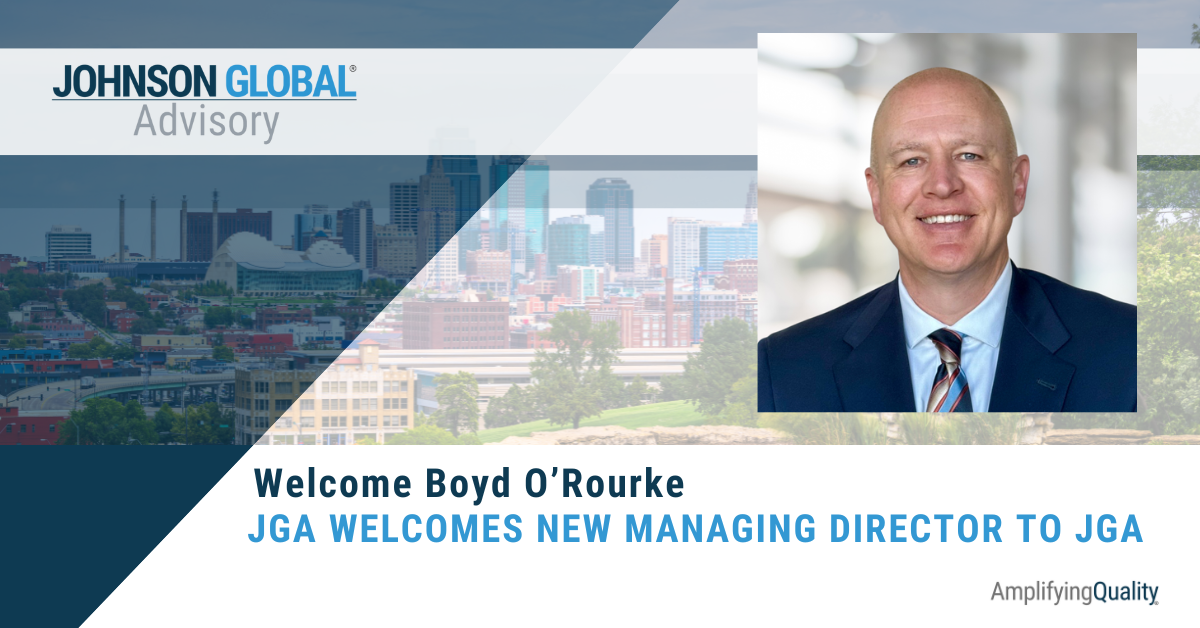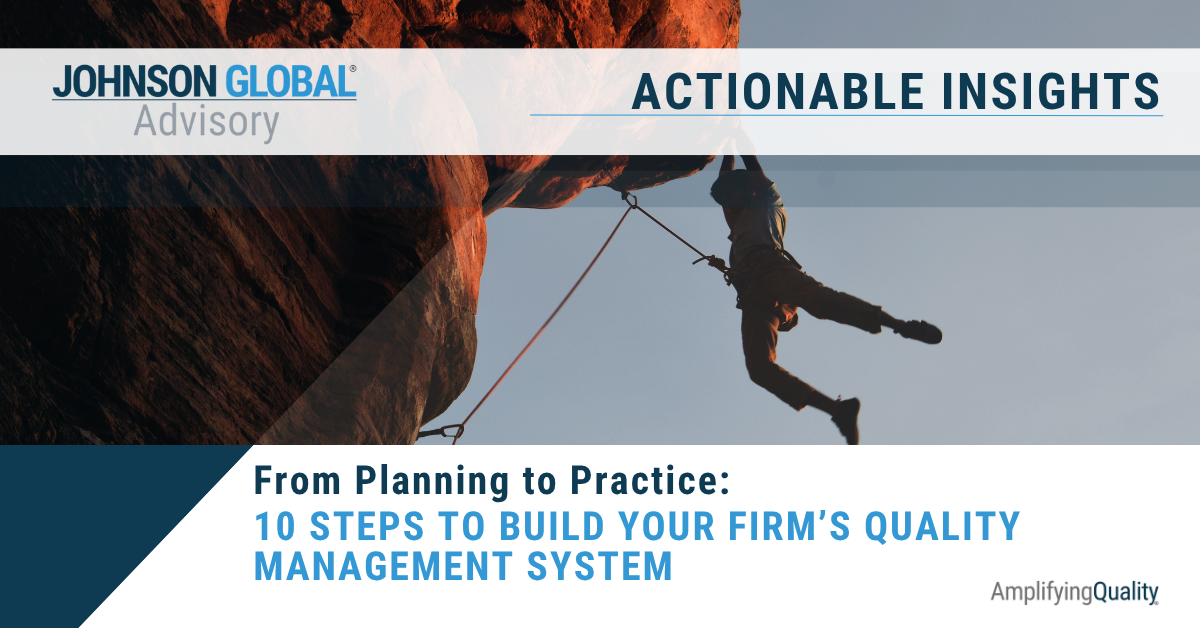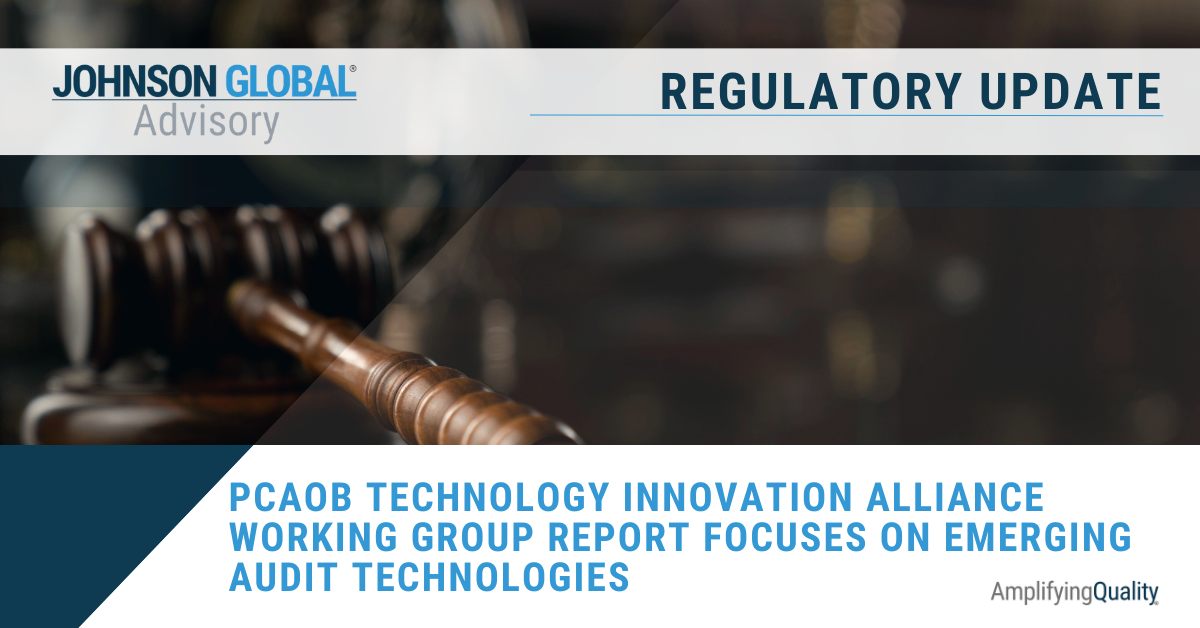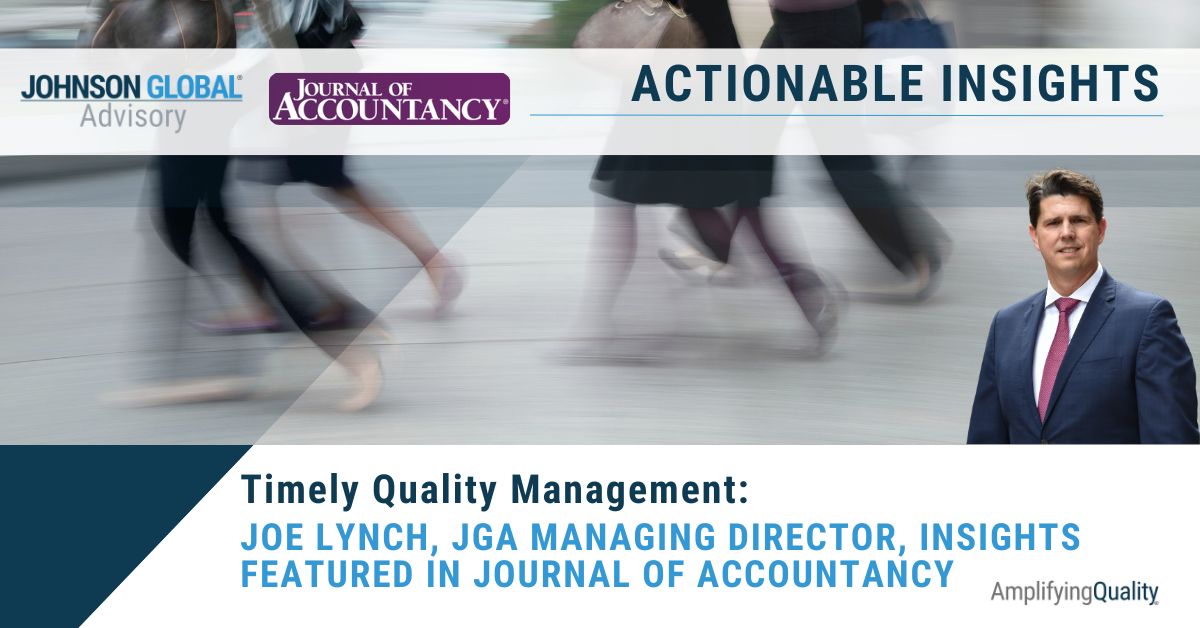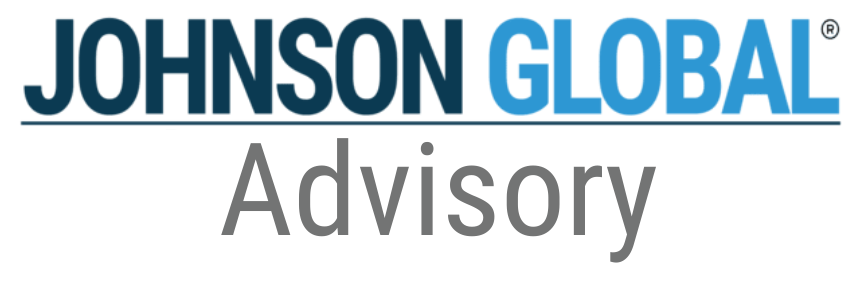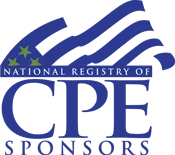JGA Team Perspectives: Navigating the PCAOB Enforcement Landscape

Editor's note: This article is the first in a series to highlight the unique experience that JGA professionals possess and deliver to our clients.
What is top of mind for the Public Company Accounting Oversight Board (PCAOB)?
The PCAOB has made it clear that it intends to carry out an aggressive inspection program to identify and correct the high rate of audit quality deficiencies it continues to find and refer matters to its Division of Enforcement and Investigations (“DEI”).
“As a consultant, I work with audit firms to establish or enhance their policies and procedures so they deliver audit services at the highest quality level and hopefully avoid regulatory scrutiny from the PCAOB and SEC.”
When an auditor or firm has become subject to a PCAOB or SEC investigation, JGA can assist in a number of ways including in their responses to informal document requests, Accounting Board Demands, and subpoenas for workpapers, emails, and other documents. Our consultants also perform workpaper review, provide case assessments and strategy guidance, assist with witness preparation, and help in preparing white papers, Statements of Position, and Wells responses. We also serve as expert witnesses by providing expert reports and expert testimony.
Johnson Global professionals consult firms on timely remedial and corrective actions and other activities to obtain PCAOB extraordinary cooperation credit to substantially reduce or eliminate monetary penalties and sanctions. Once there is a PCAOB enforcement inquiry, before a case is brought, we review audit workpapers and documents and evaluate the firm’s quality control system to identify the potential violations, assess the significance of the violations, provide a root cause analysis, and propose remedial solutions.
Existing or new clients include individuals and firms who have received a letter from DEI or the SEC’s Enforcement Division announcing an informal inquiry, or that a formal order of investigation has been initiated. “Our vast network, includes attorneys that I know from doing forensic accounting for so many years.” As needed, we assist firms in obtaining counsel with experience working with the PCAOB and SEC, if they do not have one. We work with counsel closely in these matters for counsel to provide legal advice and correspond with the regulator directly on behalf of the firm.
Recent Trends
PCAOB Reporting - Form AP and Form 3 Compliance
We have seen an increase in the number of PCAOB enforcement actions related to PCAOB Form AP (Auditor Reporting of Certain Audit Participants) and PCAOB Form 3 (Special Events). The general requirement for Form AP is to file it within 35 days from the date the firm’s audit report is first included in a Form 10-K or 20-F filed with the SEC. For Form 3, the form must be filed within 30 days after the event. Firms are not filing these on time, commonly because they are not aware of the requirements or forget to file. Once the audit is over, attention can get diverted from Form AP. Form 3 is particularly burdensome because there are 18 specified events to report and monitoring these can be a challenge. Also, these forms may not be filled out correctly.
For Form AP, it is easy for the PCAOB to determine whether a firm has timely filed it by comparing SEC filings to the Form AP filing, and the inspections group will routinely do that. It is harder for the Board to identify Form 3 compliance issues because their special events are unique to each firm, but we see instances of that occurring and enforcement matters as a result.
When compliance failures occur, we have observed that the DEI will send a letter to the firm with a draft order that will propose a settlement, without even discussing the matter with the firm. We discuss the options with the client and client’s counsel, including the costs associated with litigation, so they can decide. Most clients do not challenge the Board and agree to the censure and fine, which can be $5,000 or more per violation, along with the requirement for a self-review and self-certification of the firm’s quality control policies and procedures relating to PCAOB reporting. The consequences of any compliance failure on these forms can be harsh, even though it was just a mistake.
Form compliance is an area where we can help firms to make process changes and put policies and procedures in place to timely file and avoid a repeat failure. We recommend annual training on PCAOB reporting and the implementation of an annual certification process for Form 3 events. For Form AP, we help firms institute tracking and monitoring controls by the designated head of quality. For example, we designed a Form AP tracker that includes the relevant required information for all the firm’s PCAOB clients, along with the estimated filing dates and calendar reminders so there is a process to monitor engagement teams to proactively follow up. We also developed a Form 3 checklist that includes the trigger events and can be used at monthly meetings or by email requiring affirmative responses, so firms are able to proactively identify the events that require a filing.
Communications with Audit Committees
This is an area where the PCAOB is using sweeps, presumably from information gathered at the audit inspection level. Participation of other auditors in the audit must be communicated to the audit committee, but the PCAOB has noted failures to communicate which firms and individuals were involved and what they did.
Another common problem area in audit committee communications is the lack of required preapproval of non-audit and audit related services. Firms may need training to understand the requirements, along with additional quality control policies and procedures. There should be audit program steps in the tools firms use that apply to audit committee communication in PCAOB audits, not those under AICPA or international standards, because the rules are not the same.
The PCAOB continues to bring cases in this area, even if it is for one single violation of this PCAOB standard. There is an apparent zero tolerance policy at the PCAOB for violations of this nature.
Engagement Quality Review
EQR is a hot area now. Firms may not have done one at all, or the quality is not there - either on the front end for risk identification and planning, or at the back end when the audit is done. Our firm has developed and provides an EQR mentoring program , which is a collegial one on one approach to help firms get better, and it includes retraining as partners rotate on engagements.
Documentation
There are a number of inspection findings relating to AS 1215, Audit Documentation, including firms adding, backdating, or altering workpapers after the report release date. There is a process under the standard for adding documents that includes documenting who made the change, when, and why. We advise firms that have documentation issues to follow the standard because it is not advisable to make it look like a workpaper was always there when it was not.
Quality Controls
The PCAOB is very focused on this area. When the PCAOB finds a number of violations, firms should consider whether they have quality control issues, including whether there is a strong ‘tone at the top’ related to audit quality. Most PCAOB enforcement actions issued in 2023 either cited a QC failure or required the firm to enhance its QC system as part of the sanction.
It can be challenging for firms, especially those with fewer than ten or so PCAOB clients, to determine how much financial and personnel resources to commit to the firm’s system of quality control. The notion of scalability seems to have gone by the wayside resulting in a high fixed cost for entering the PCAOB audit market and maintaining a presence in that space. Some firms are hesitant to invest in compliance measures because of the high costs, but better quality likely will lead to getting more clients and the potential for less trouble down the line.
There is a new PCAOB auditing standard on quality control coming soon, and it includes a requirement that assigns individual responsibility and accountability for the QC system. There is awareness, but we are encouraging our clients to get ready for this now. We offer quality control review services and can serve as a quality control confidant, especially for small firms that do not have a QC leader.
PCAOB Inspections of China and Hong Kong Firms
Last year, the PCAOB published inspection reports of PCAOB-registered firms in China and Hong Kong and announced enforcement actions and a record high level of penalties as a result of violations of PCAOB rules and U.S. securities laws. These included auditors cheating on ethics and other internal examinations, and extensive quality control deficiencies.
By 2023, the PCAOB will have inspected up to 99 percent of these firms’ audits. Inspection reports are expected to come out in April 2024 showing more of the same deficiencies. The 2024 PCAOB budget includes resources to continue inspections in this region. U.S. firms should look at these inspection results and enforcement cases to be aware of what the PCAOB found and is continuing to look for.
Conclusion
PCAOB Chair Williams and the current board continue to deliver a tough message about audit deficiencies and enforcement. The PCAOB is filing enforcement cases not only against firms that pose potential danger for not doing anything right but also for compliance failures, including those relating to PCAOB reporting. Auditors need to invest in audit quality and keep on top of changes in audit standards to avoid PCAOB scrutiny and potential sanctions.
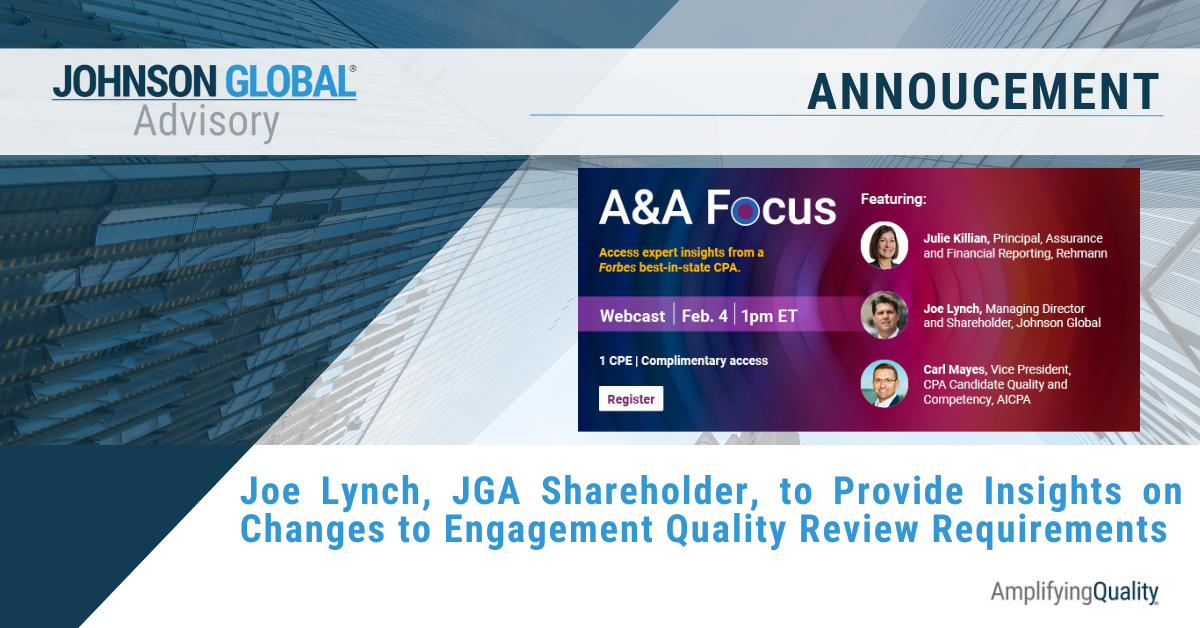
Joe Lynch, JGA Shareholder, to Provide Insights on Changes to Engagement Quality Review Requirements


